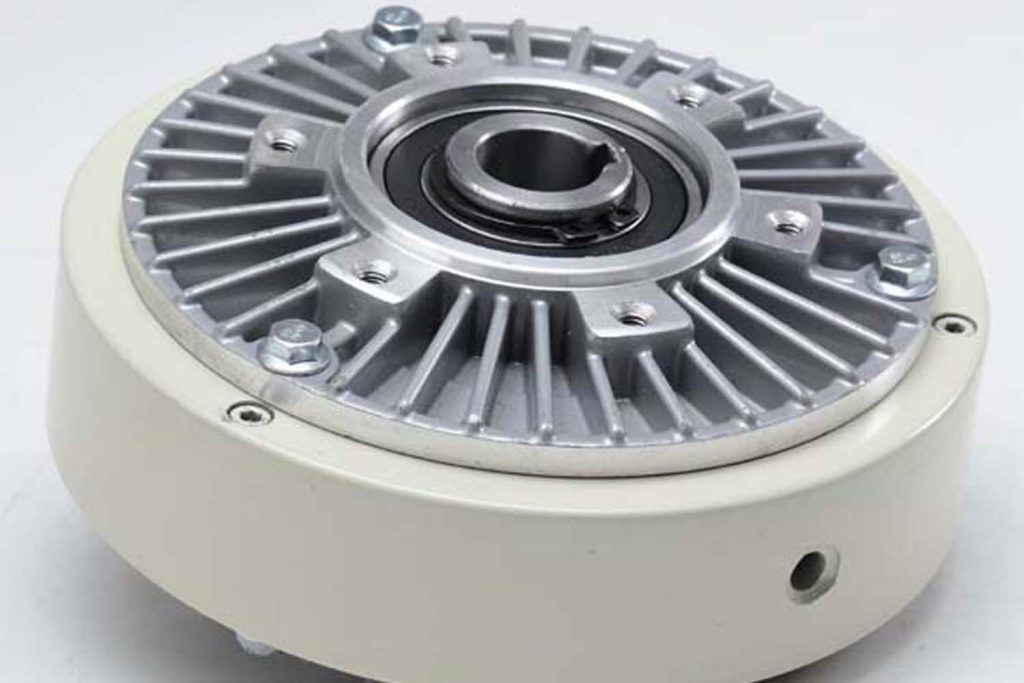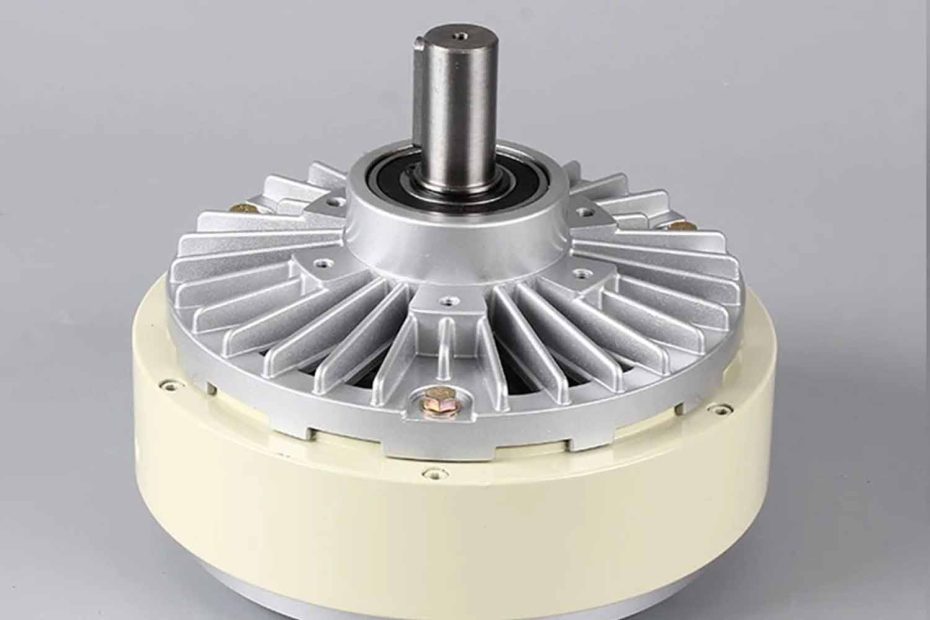Industrial machinery plays a vital role in various sectors, from manufacturing to transportation. Ensuring the safety of workers and equipment within these environments is paramount. One crucial component contributing to this safety is the magnetic particle brake. This article delves into the functions, benefits, and significance of magnetic particle brakes in enhancing safety in industrial machinery.
Magnetic particle brakes are a type of electromagnetic clutch system utilized in industrial machinery to control the torque transmitted from the motor to the load. They operate on the principle of utilizing magnetic particles suspended in a carrier fluid to transmit torque. When an electrical current is applied to the brake coil, the magnetic particles align with the magnetic field, causing the brake to engage and transmit torque. Conversely, when the current is removed, the magnetic particles disperse, allowing the brake to disengage.
Importance of Safety in Industrial Machinery
Safety within industrial environments is of utmost importance due to the inherent risks associated with operating heavy machinery. Accidents can lead to severe injuries, loss of productivity, and even fatalities. Employers have a legal and ethical obligation to prioritize safety measures to protect their workers and assets. Implementing effective braking systems is a crucial aspect of ensuring operational safety in industrial settings.
Magnetic Particle Brakes:Four major functions to enhance the safety of industrial machinery
Magnetic particle brakes serve as a critical safety component in industrial machinery by providing precise control over rotational motion. They offer several advantages that contribute to enhanced safety:
- Torque Control: Magnetic particle brakes allow precise control over the amount of torque transmitted from the motor to the load. This feature is particularly beneficial in applications where maintaining consistent speed and preventing sudden accelerations or decelerations are essential for safety.
- Smooth Operation: Unlike traditional friction brakes, magnetic particle brakes provide smooth and gradual engagement, reducing the risk of sudden jolts or jerks in machinery. This smooth operation minimizes wear and tear on equipment, prolonging its lifespan and reducing maintenance costs.
- Fail-Safe Operation: In the event of a power failure or electrical malfunction, magnetic particle brakes automatically disengage, ensuring the safety of personnel and equipment. This fail-safe feature prevents sudden or uncontrollable movements of machinery, mitigating the risk of accidents.
- Adjustable Torque Limitation: Magnetic particle brakes offer the flexibility to adjust the torque limitation according to specific application requirements. This allows operators to tailor the braking force to suit varying loads or operating conditions, enhancing overall safety and efficiency.

Comparison of Magnetic Particle Brakes with Other Brake Systems
| Feature | Magnetic Particle Brakes | Friction Brakes | Hydraulic Brakes |
|---|---|---|---|
| Torque Control | Precise | Limited | Limited |
| Smooth Operation | Smooth and Gradual | Abrupt | Variable |
| Fail-Safe Operation | Yes | No | No |
| Adjustable Torque Limitation | Yes | No | Limited |
Top 4 Applications of Magnetic Particle Brakes
Magnetic particle brakes find widespread use across various industrial applications, including:
- Printing Machinery: In printing presses, magnetic particle brakes control the tension of the web during printing, ensuring consistent print quality and preventing paper jams or breakages.
- Wire and Cable Manufacturing: Magnetic particle brakes regulate the tension of wires and cables during manufacturing processes, preventing overstretching or tangling of the material.
- Textile Machinery: Textile machines utilize magnetic particle brakes to control the tension of yarn or fabric, ensuring smooth weaving and preventing thread breakage.
- Machine Tools: Magnetic particle brakes are employed in machine tools such as lathes and milling machines to regulate spindle speed and feed rate, enhancing precision and safety during machining operations.
Conclusion
In conclusion, magnetic particle brakes play a crucial role in enhancing safety in industrial machinery by providing precise torque control, smooth operation, fail-safe functionality, and adjustable torque limitation. Their versatility and effectiveness make them indispensable components in various applications, ranging from printing and textile machinery to machine tools and wire manufacturing. By incorporating magnetic particle brakes into industrial equipment, employers can mitigate risks, protect personnel, and ensure the efficient and safe operation of their machinery.
